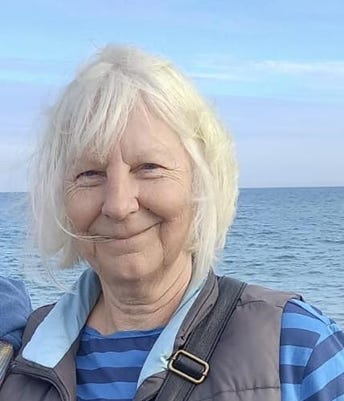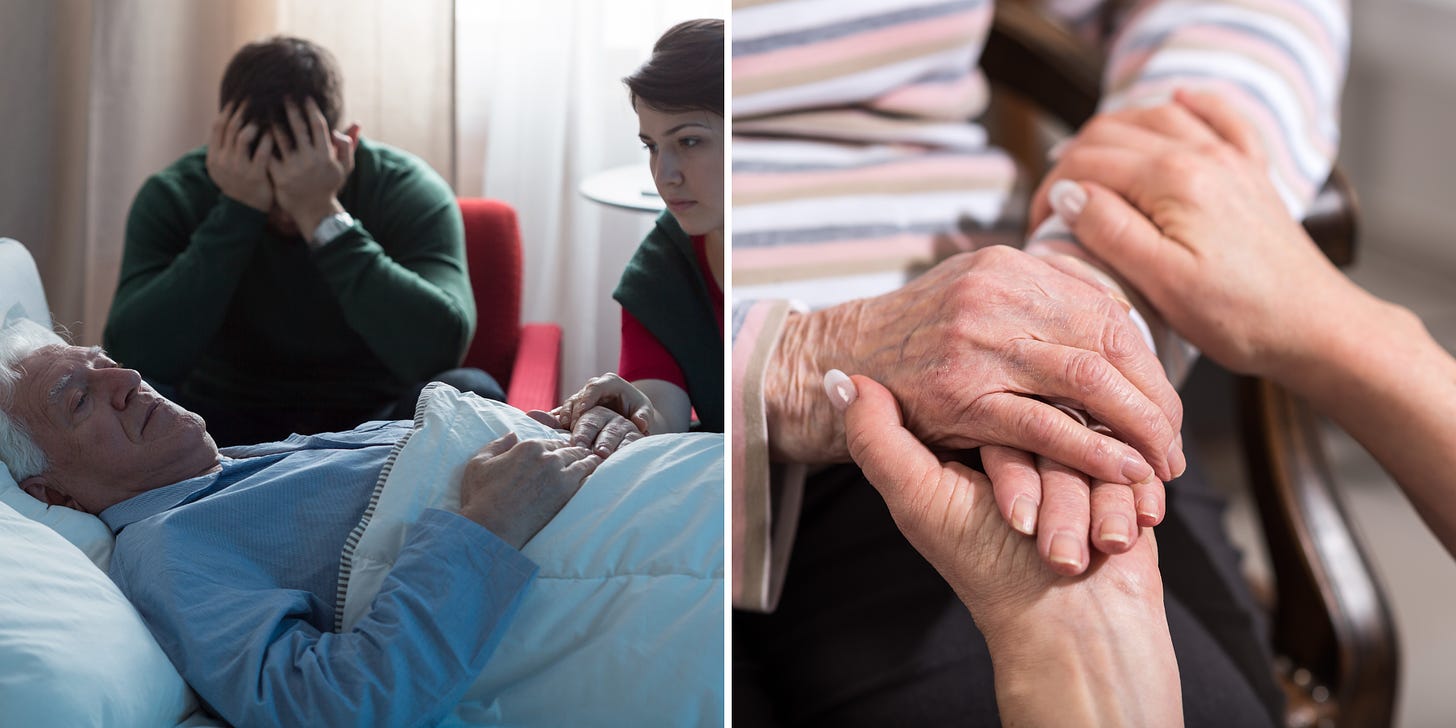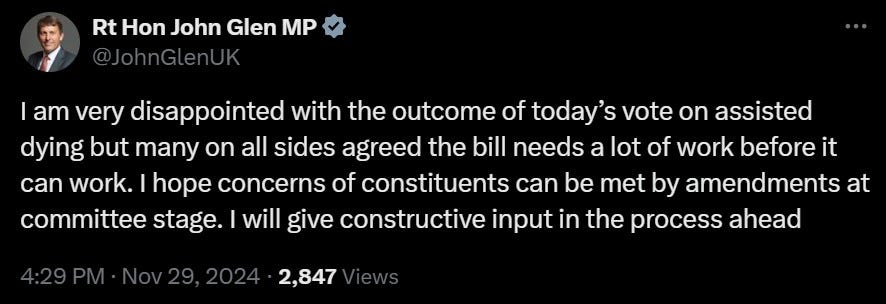Inside Salisbury: MP John Glen voted against the Assisted Dying Bill + Who is the real Annie Riddle?
Spotlight on Salisbury City Councillor Annie Riddle
From Fleet Street to Salisbury Councillor - who is the real Annie Riddle?
By Annette J Beveridge
From a journalistic role in Fleet Street to becoming a well-known councillor at Salisbury City Council, Inside Salisbury wanted to meet the woman behind the role.
Annie Riddle enjoyed a long career as a journalist. After her A-levels, she embarked on an apprenticeship and then went to University. Her first role was on the Romford Recorder in London, then a local daily and she gradually took on casual shifts with National newspapers.
Annie said: “When I first got into Fleet Street, I would have been about 28, and it was at the stage where there were very few women sub-editors on the tabloids.
“It was a different ballgame then. You were basically headline writing, [and] taking the whole page and just starting again from scratch.”
Journalism is a demanding role. There are tight deadlines and life is highly pressured. Annie admitted that feedback to journalists can also be brutal at times.
She said: “I think every journalist has to be a curious mixture and have a thick skin to deal with the objectionable responses – especially if you have been doing court reporting.
“But if you are not reasonably thin-skinned in the sense of being sympathetic and understanding to other people, there is no point doing the job. So you have got to care about it but at the same time, develop quite a hard shell.”
Her time at Fleet Street was memorable.
She said: “We used to take two-hour breaks. This was when I was at The Express. There were a bunch of young lads there, four of them, they were very good, but they used to push it. They had this thing called the Drones Club and would pretend to be characters out of Bertie Wooster with the monocles and this would go on for the whole shift.
“But there was a freedom to write. We had the time to do it. We didn’t have that when sub-editing.”
Subs in local papers do not have the luxury of time to rewrite now in comparison with the process on national papers.
Read more: This keystone species could be in Salisbury
One day while working, Annie was told that ‘The Express are looking for a female sub-editor.’
It was meant to say that subs in local papers don't have so much luxury of time to rewrite now, compared with what used to happen on the nationals.
Annie said: “The emphasis was on ‘female’. But I got in touch with them and I kind of walked into the job. I didn’t even have to do a trial shift. It had been decreed that it was time they had a woman in that role.
“When I joined The Mail, quite a few years later, there were three female subs and they used to call us The Three Degrees. I remember one person saying to me, ‘If you want to get a promotion, you should wear make-up.’
Annie said: “It was actually meant quite kindly.”
Fleet Street was very male-dominated. Heavy drinking was the norm but there was a lot of fun.
Annie said: “I worked with some really clever people. The journalists were really strong writers and had to take a story that came in from four or five different places and write it in the voice and style of the paper.”
Annie worked at The Mail for 13 years.
She said: “It is no game to get old in.
“I had two female friends who were subs and both of them died by the age of 55. It is the whole lifestyle. I said I am not going to do it after the age of 50. That had seemed like a long time away when I first started.
“There was an awful lot of sexism and comments about what you wore and comments about your legs. It was a complete lad’s world.”
Annie moved locations and newspapers several times.
Annie said: “I didn’t want to stay after the age of 50 and I was offered to take my pension early. So I decided I would do that. The thing I liked the most was being a reporter for a local paper.”
Annie joined the Salisbury Journal newspaper when she was in her 50s. She remained as a reporter for four or five years and then decided to go travelling but family illness brought them back more quickly than they had planned.
She was then offered the chance to write a column for the Salisbury Journal and was pleased by the interaction gained from it.
She said: “It was really interesting. I loved it. I was given completely free rein and could write about the things that really interested me - which in those days was related to local politics. It was a busy time in Salisbury because we were moving from a district council to a unitary council. It was throwing up all sorts of interesting stories.
“Salisbury was losing a lot of control over its own affairs and it was something I felt quite strongly about. I was trying to chronicle it. I tried to do it in a humorous way but it probably made me a few enemies, in fact, I am sure that it did.”
One newly elected Wiltshire Councillor was coming back from a seminar they were given about how to deal with the media and told Annie her name had been mentioned in a derogatory way.
Annie laughed and said: “I was under no illusions anyway.”
Journalism has changed greatly over the years. These days there is a far greater emphasis on digital journalism over traditional publishing. News is published quickly to meet the needs of people on the go but often, important news stories receive less interest than articles on lightweight topics.
Annie’s son Joe did some work experience on the Salisbury Journal and then worked his way up.
Annie said: “My son Joe became the editor of the Salisbury Journal and went onto The Mail Online and then The Telegraph. So he went from a big readership local paper and now is head of digital news. Fortunately, he has found he can make it work for him.”
Last chance: So many good things wrapped up in an informative bundle
Annie admits that one of her pet subjects is planning and that getting information out to people can be difficult.
She said: “When I put something on the Facebook SOS page, and I know how to do it so people read it, but it doesn’t get half the take up of a silly story.”
Annie takes her role as a councillor very seriously and is a firm supporter of nature and the environment.
She said: “One of the things I said at the council meeting, [Broken Bridges Meeting] was how can we spend £50,000 for a riverside nature reserve but then next vote to spray carcinogenic chemicals on our verges which will go down our drains and to the river?
“We have got to have that joined-up thinking. So even though it is inconvenient to have weeds growing up, people can pull them up. They could spray them but we hope they won’t.”
Annie Riddle is the city councillor for Harnham West and is the Administration Group Leader of the Council as an Independent. Find out more about Annie here.
Salisbury MP John Glen voted against the Assisted Dying Bill but what do you think?
THE Assisted Dying Bill is an emotive subject which has led to much soul-searching with concerns that vulnerable people could be pressured or coerced into a decision.
After much speculation, on Friday, November 29, in the House of Commons MPs voted in favour of legalising assisted dying across England and Wales.
Salisbury MP John Glen voted against the bill writing on the social media site X that he was disappointed by the result.
Read more: The Salisbury pubs you probably never knew existed
What is the process?
The bill is known as the Terminally Ill Adults (End of Life) Bill and it would make it legal for those aged over 18 who have been diagnosed as terminally ill to be given assistance to end their own life.
There are strict rules which must be followed:
Keep reading with a 7-day free trial
Subscribe to Inside Salisbury to keep reading this post and get 7 days of free access to the full post archives.






